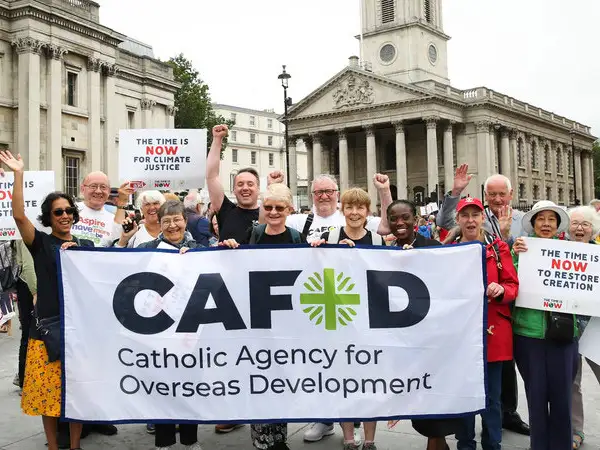
In 2020 and early 2021, the Caritas Internationalis policy taskforce, which brings together national NGO members of the confederation and members that have a mandate to work internationally, partnered on a research initiative to gather views on their experience of local leadership in the humanitarian response to the Covid-19 pandemic. A survey was developed and interviews conducted to gather insights from different parts of the confederation. Over 55 Caritas national organisations completed the survey, and over 15 interviews were conducted.
We believe our findings have relevance both for Caritas partner organisations, but also to other actors, including donor governments, UN agencies, host governments and others.
Over the coming period, donors and humanitarian agencies meet to decide ways forward on the Grand Bargain process, which established global commitments on support to local leadership in humanitarian action. Individual donors, UN agencies and NGOs are also developing their own plans on how they support such efforts.
Key recommendations
Our research proposes the following four priorities:
Scale-up support to country-level funding platforms that promote local NGO leadership, preparedness and timely funding to frontline responders. Our research emphasised how longer-term partnerships before crises occur are essential to enable the potential of local actors across preparedness, resilience and response. NGO-led platforms are best placed to foster holistic approach to institutional and technical sector-specific capacity-strengthening of local NGOs (eg through south/south capacity-sharing and ‘learning by doing’).
Go beyond quantitative tracking of localization to assess the quality of funding and partnerships with local faith-based organisations and other civil society groups. Short-term projects, which keep local NGOs trapped into sub-contractor roles, do not foster local leadership or resilience. In protracted crises and beyond the 3-month phase of rapid on-set emergencies, international agencies should be held accountable for effective exit strategies and promoting local leadership of the response. UN agencies & INGOs receiving multiyear funding should be held accountable for cascading the benefits to local partners.
Recognise and address risks faced by local NGOs; including through a fair and consistent global approach to covering the overheads of local NGOs. Too often the current approach from donor governments and international agencies centres their own risks, and does not give sufficient or systematic attention to the risks faced by communities or local NGOs in crisis situations. Longer-term quality funding and country-level platforms, as outlined above, are key to effective partnerships with local NGOs in managing risk. The policies, procedures, training and organisational culture required to manage risk cannot be funded on short-term projects with no overheads support.
Engage diverse local civil society actors, including faith based organisations, in ways that respect the integrity of their identity and do not seek to turn them into replicas of international agencies. Practical steps towards this can include UN agencies investing in deliberate steps to link their coordination processes to the spaces and processes in which national and local faith actors come together. Other practical priorities include addressing language barriers, strengthening sub-national engagement by humanitarian coordination processes outside of capital cities (including through area-based coordination) and establishing more systematic steps across the UN Humanitarian Programme Cycle and coordination structures (eg. clusters and sector working-groups) to engage a more diverse range of local actors; including local faith groups, women’s organisations, disabled peoples organisations and youth networks.
The Caritas Internationalis policy taskforce brings together both Caritas partners that work as international NGOs and Caritas national organisations in contexts as diverse as Bolivia, Nigeria, the USA, Germany and UK, among others. The taskforce is co-chaired by CAFOD.
Resources


[Français] La localisation en temps de Covid-19 : l’expérience des organisations Caritas nationales dans le domaine du financement humanitaire, des partenariats et des efforts de coordination durant la pandémie

[Español] La localización en el contexto del COVID-19 - Experiencia de las Caritas nacionales con la financiación humanitaria, las colaboraciones y los esfuerzos de coordinación durante la pandemia del COVID-19
CAFOD policy and advocacy
Policy and research
CAFOD's policy team provides briefings, reports and research on our advocacy and lobbying work, plus materials to support our campaigns.
Campaign with CAFOD
Find out more about campaigning on social justice issues with CAFOD.



